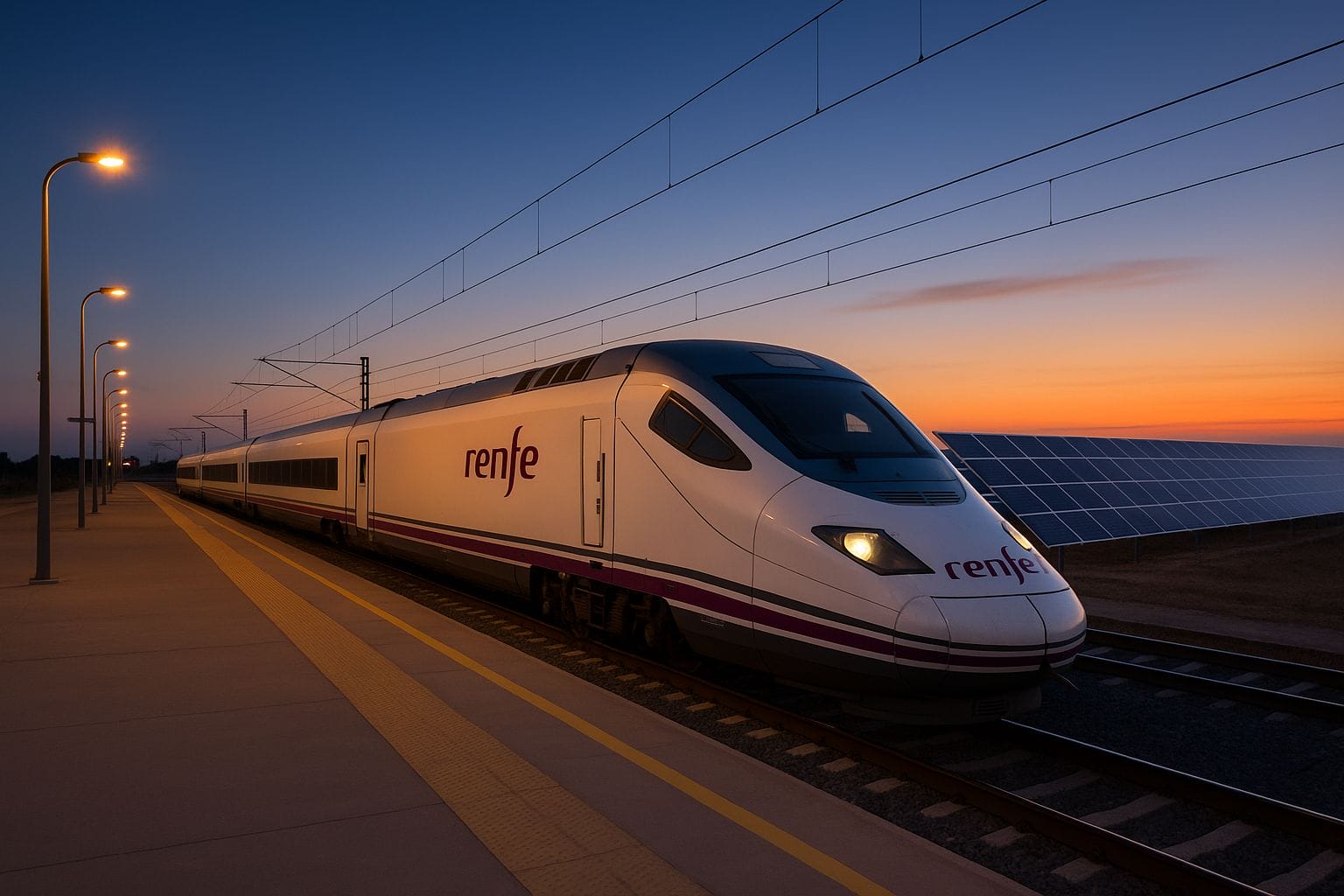Spain’s Green Ambitions Tested by Blackout-Induced Rail Disruption and Infrastructure Strain
Spain’s bold transition toward renewable energy has hit a turbulent stretch, as recent high-speed rail chaos and widespread power outages shine a spotlight on the resilience of the country’s aging infrastructure. Over 300 passengers were left stranded for more than 14 hours when a critical power failure halted a major train service on June 30, 2025—triggering national debate over whether the rapid shift to clean energy is outpacing grid reliability and transport readiness.
The incident unfolded on the Murcia-to-Malaga high-speed route operated by Renfe, Spain’s national rail provider. The train lost power due to an overhead line malfunction and remained immobilized overnight before being towed by a diesel locomotive to Toledo. Passengers endured hours of darkness and limited communication, without access to alternate transportation or emergency accommodations. The ordeal raised concerns about crisis response protocols and the readiness of Spain’s transport infrastructure to cope with technical failures.
Train services along the Madrid-Andalucía corridor remained disrupted into July 1, with only limited departures operating from Malaga to Madrid’s Atocha Station. No return trips ran southbound toward Andalucia, and normal scheduling only resumed on July 2, when same-day ticket sales reopened on Renfe’s website.
This episode marks the second major disruption linked to Spain’s electricity grid within three months. In April, both Spain and neighboring Portugal suffered a widespread blackout affecting tens of millions of residents, halting rail networks, and impacting critical services. Analysts traced that failure to a dramatic loss of 15 gigawatts—nearly 60% of Spain’s national power capacity.
Experts Warn of Systemic Weaknesses Amid Energy Shift
The Ministry for the Ecological Transition later revealed that the April blackout stemmed from voltage surges that overwhelmed the grid’s capacity—specifically in southern Spain—where smaller cascading failures spiraled into a systemic collapse. Key power plants were offline for maintenance, with no contingency plans enacted to compensate during peak load conditions.
Critics argue that while Spain leads the continent in adopting renewable energy—wind, solar, and hydro now account for over 57% of national electricity—these intermittent sources may not deliver the consistent baseload generation needed to maintain grid stability during emergencies or sudden demand spikes.
Industry observers point out that the closure of nuclear facilities and reduced dependence on gas-fired plants have weakened Spain’s ability to respond to technical anomalies swiftly. The absence of flexible, dispatchable backup energy sources can make the system more fragile in high-stress moments.
Government Defends Renewable Path, Vows Infrastructure Upgrades
Despite mounting concerns, Spain’s government remains steadfast in its commitment to decarbonization. Prime Minister Pedro Sánchez has rejected calls to reconsider nuclear or fossil fuel reinvestment, framing the disruptions as technical issues unrelated to the nation’s green strategy.
“Spain remains a leader in renewable energy reform,” Sánchez declared in a recent press briefing. “These challenges underscore the need for smarter planning and investment—not a return to outdated energy models.”
The government has pledged increased funding for grid modernization, battery storage capacity, and smart transmission technologies. Investments in AI-driven demand forecasting and regional energy balancing systems are also expected to play a role in improving grid resilience.
Meanwhile, Red Eléctrica, Spain’s national grid operator, faces heightened pressure to revise its operational protocols and emergency response measures. Investigations are ongoing into both the June and April incidents, with authorities demanding detailed risk assessments and contingency planning reforms.
Tourism and Transport Implications
Spain’s tourism sector—one of the largest in Europe—may see ripple effects from the incident. High-speed rail connections between Madrid and key tourist destinations like Malaga are vital for both domestic and international travelers, particularly during the busy summer season.
As rail becomes an increasingly preferred mode of transport due to its lower carbon footprint and scenic routes, disruptions of this scale can dampen traveler confidence. Holidaymakers caught in prolonged delays may reconsider future rail travel, unless Renfe and infrastructure agencies deliver visible improvements in reliability.
The government’s broader strategy to promote sustainable tourism—including green transport and regional connectivity—relies heavily on dependable rail operations. Ensuring that modern energy systems and transport infrastructure operate in harmony is now a national imperative.
A Turning Point for Spain’s Energy and Transit Future
Spain’s renewable transition is widely seen as a benchmark for other European nations aiming to reduce emissions and phase out fossil fuels. However, the recent crises illustrate that clean energy adoption must be paired with robust infrastructure planning and adaptive crisis management.
For the hundreds of stranded passengers in darkened rail cars, the long-term environmental vision may offer little comfort in the face of immediate logistical failures. But for Spain, these hard lessons could prompt a pivotal moment—one where the pursuit of a greener future is reinforced with the structural stability and operational foresight it demands.
As Spain continues to power forward on its green journey, the spotlight now turns to ensuring that passengers, industries, and critical systems are never left in the dark again.
For more travel news like this, keep reading Global Travel Wire















